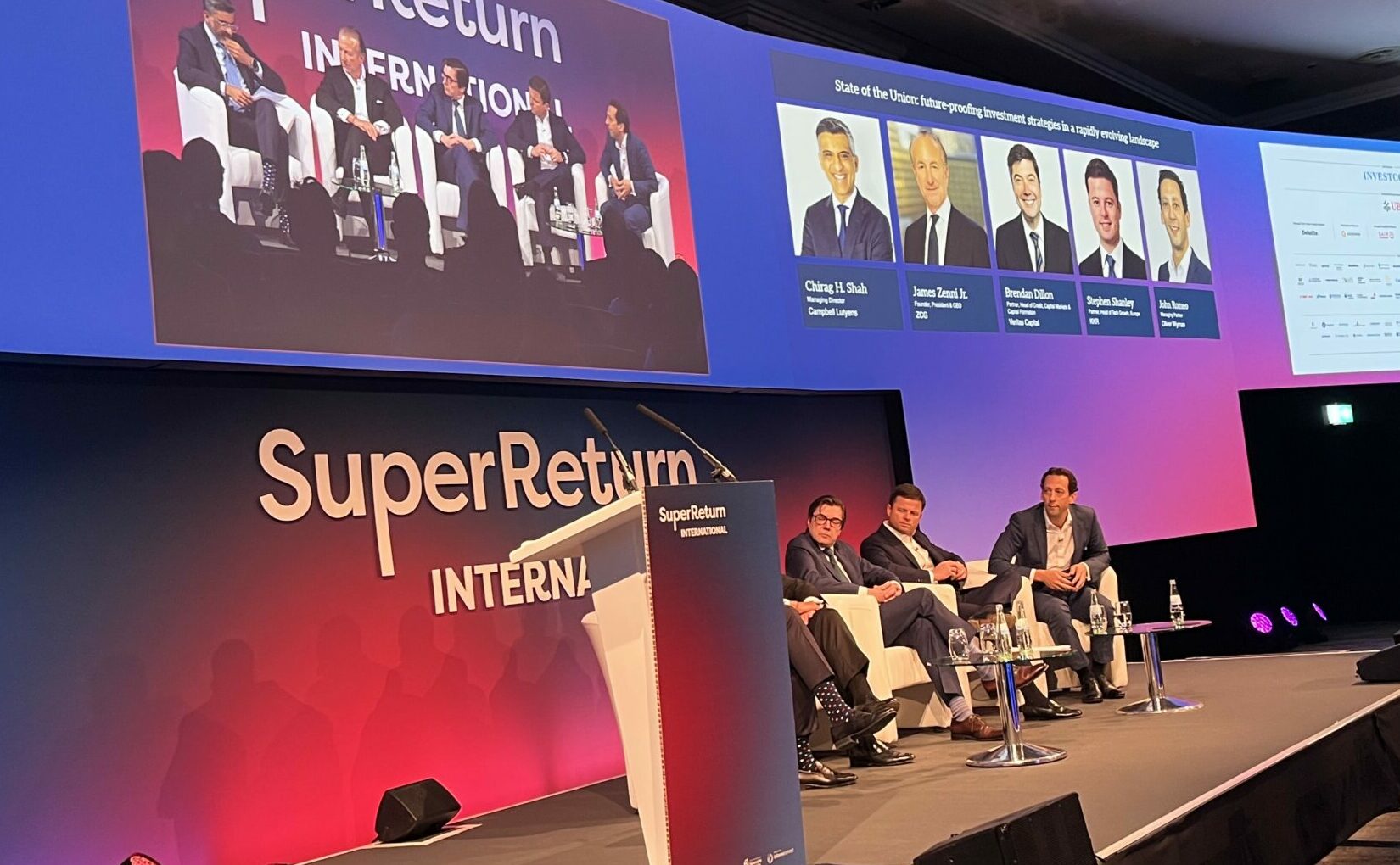This week, nearly 6,000 professionals from across the globe convened in Berlin for SuperReturn International 2025. As the premier event for the private markets industry, the conference has never felt more urgent or relevant. Against a backdrop of macroeconomic instability, shifting geopolitical alliances, and regulatory flux, private equity and private credit leaders are navigating what could well prove to be a defining moment for the asset class. The biggest takeaway from the conference, pervasive everywhere from the main stage to the hallway conversations, is that the rules of the game have changed, and private markets are already adapting.
There was no illusion in Berlin of easy wins. Liquidity is tight, exits are more difficult, and capital formation is more complicated. But there was an unmistakable sense of resolve among the industry’s top minds. From GPs to LPs to advisors and allocators, the tone was one of clear-eyed urgency; this is not a market to wait out. It’s one to meet head-on, with innovation, resilience, and a willingness to rethink what once seemed certain.
Many outdated assumptions are being discarded. Risk-free rates are no longer an option. Regulatory environments are unpredictable. Geopolitical tensions are now investment variables, not background noise. Firms are pricing risk with far more rigor, building more resilient capital structures, and using a broader set of tools, ranging from continuation vehicles to NAV-based lines to preferred equity, all designed to keep capital moving.
A recurring theme was the embrace of complexity. In a panel on macroeconomic and geopolitical disruption, speakers pointed to how diverging monetary policy, capital market fragmentation, and protectionist trade policies are all colliding in ways that force investors to be more selective and more global in their perspective. One speaker aptly described it as “the great reshuffling” of capital, with investors reconsidering jurisdictions, sectors, and structures in real time. The biggest shift in this regard is towards Europe. Virtually all the global managers on stage referenced the renewed importance of the continent. As one speaker noted, “Shifting capital to Europe is no bad thing.” Whether the talk translates to allocations remains to be seen, but if it does, European private equity could be entering an unprecedented period of growth.
That fluidity is also showing up in strategy. The firms that stood out in Berlin weren’t doubling down on leverage or financial engineering, but on core value creation and operational depth. Several large managers spoke of a shift back to first principles: invest in strong businesses, support their growth, and stay close to management. In this environment, speed is less important than durability. That’s not to say creativity isn’t valued. Quite the opposite. Fund managers are looking at exploring any opportunity to unlock sources of capital and make deals, including finding ways to partner directly with corporates, government agencies, and even rivals to source deals, co-invest, and build platforms.
Artificial intelligence emerged as a prominent theme, though not in a headline-chasing way. The most interesting discussions centered on how AI can be embedded within existing investment frameworks to improve diligence, automate operations, and enhance decision-making. AI, panelists agreed, is not a differentiator on its own. Rather, it’s a capability to be paired with sound judgment and deep domain expertise to be meaningful. One panelist commented that as this is the first vintage where AI is being widely deployed, it’s one to keep an eye on.
Geopolitics, too, was a recurring focus. One session highlighted how foreign policy and national security are now central to investment strategies. The line between global affairs and capital allocation has blurred, with government priorities, energy policy, and cross-border regulatory risk now key considerations. Capital is moving in new directions, not just for returns but in alignment with regional priorities and strategic partnerships.
There is also a shift underway in the expectations of capital providers. Investors from the Gulf and Asia are no longer just offering checkbooks. They are expecting deep partnership, long-term alignment, physical presence, and, for sovereigns, in-country investments. For GPs seeking to scale globally it requires understanding the nuances of local politics, building on-the-ground teams, and being seen as committed stakeholders in regional development. That expectation is reshaping how firms think about growth markets, especially in a world where being welcomed can no longer be assumed.
Another clear area of opportunity GPs are exploring is the democratization of private equity, which is no longer an abstract goal but a reality. As technology platforms, regulatory frameworks, and capital access models evolve, a broader base of investors is gaining exposure to the asset class. This brings new responsibility to communicate clearly, ethically, and consistently with audiences who may be newer to the space but no less important. Education, transparency, and trust are fast becoming pillars of long-term success.
All of this has direct implications for communications. At a time when market conditions are volatile and the headlines often make for difficult reading, it’s more important than ever for GPs to clearly articulate their value, vision, and differentiation. The ability to communicate proactively and credibly, whether to LPs, the media, regulators or even retail investors, is no longer a nice-to-have. It’s a strategic asset. The firms that tell a coherent story about how they are navigating uncertainty, creating value, and investing responsibly, are better positioned to attract capital, build trust, and stand out in a crowded marketplace.
Effective media relations and thought leadership also serve the critical function of shaping the narrative, rather than reacting to it. As issues like AI governance, climate regulation, and cross-border deal scrutiny dominate the conversation, firms that contribute to the dialogue are the ones that will help define it. This year’s SuperReturn International underscored that reputation, once considered downstream of performance, is now a leading indicator of success.
